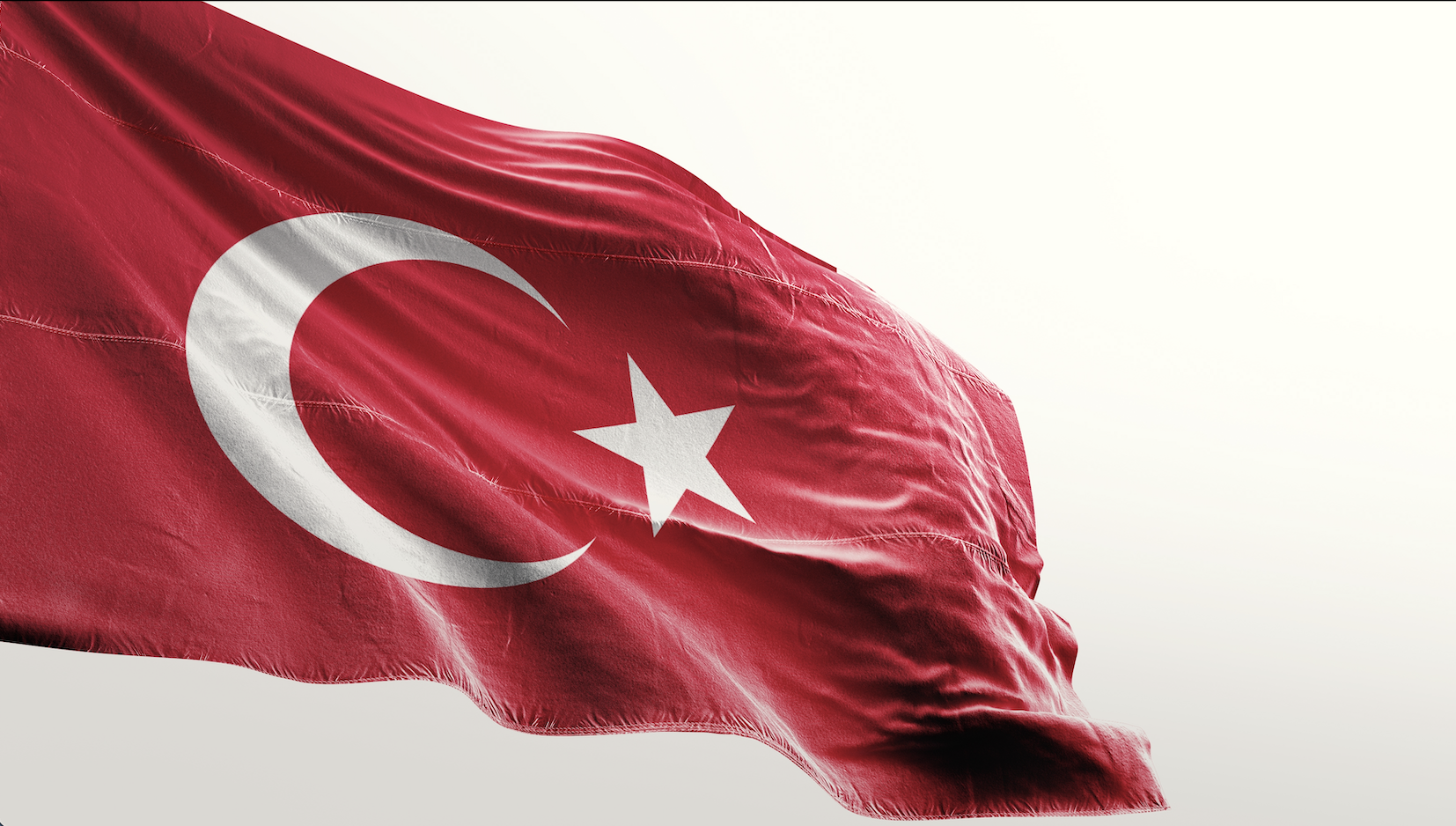Hybrid threats in the Western Balkans: State and non-state perspective
Omar Memišević
Hybrid threats represent coordinated subversive and influence activities that combine conventional and unconventional means and methods to advance the strategic interests of state or non-state actors by exploiting the vulnerability of their target or directly harming it without a formal declaration of war. Hybrid threats can interfere with the functioning of various spheres of social life, which subsequently hurt the realization of the security interests of the actors concerned (ISBA, 2023). Even though the presented study primarily deals with the systematic threat to the basic attributes or functionality of state actors, hybrid threats represent a risk for a wide range of actors, including international organizations, private entities, or critical infrastructure. Among the most frequently used tools are disinformation, propaganda, cyber-attacks, influence and information operations, strategic corruption, paramilitary groups, and espionage. The systematic use of these or many other tools can lead to destabilization, paralysis, and disruption of society or its security and government structures. The consensus of experts on the motivation behind hybrid activities is either economic or aims at creating a climate of the lack of rule of law, mistrust in the EU, and overall weak institutions, which in turn create a lack of general security and foster organized crime.
This analysis is a summary of a much longer research output of the project “Analysis of hybrid threats in the countries of the Western Balkans: challenges and actors with potential impact on the security of the Slovak Republic”, implemented by Strategic Analysis Think Tank in 2023, with the financial support of the Ministry of Defence of the Slovak Republic.
Russia
Sometime after the 2013 Euromaidan revolution in Ukraine, Russian influence in the Western Balkans took on a new dimension, too. Before Euromaidan, Russian influence in the region was limited to state-to-state relations, economic and infrastructure projects, and political support for international efforts such as the OHR in Bosnia and Herzegovina. Following the Euromaidan in Ukraine, Russia’s influence saw a sharp turn towards disinformation campaigns, political support for separatist tendencies in Bosnia and Herzegovina, anti-NATO protests in Montenegro and the general spread of anti-Western narratives. The Kremlin playbook on this is very clear. It is using the divisive elements within the six Western Balkan (WB6) societies to further that divide and create a climate of discontent and lack of rule law on the literal border of NATO and the EU. Such activities have resulted in the decrease of support for EU membership in countries like Serbia, but also in democratic backsliding and degrading of democratic standards in basically all WB6 countries. In some cases, these activities resulted in violent civil unrest, like in Montenegro in 2016, where a Russian intelligence operation headed by at least two Russian nationals resulted in a failed Coup attempt against the then-government of Duško Marković.
The way Russia is doing this is through the exploitation of divisive elements in the society. In Bosnia and Herzegovina that would be the separatist tendencies of Milorad Dodik, the President of Republika Srpska, one of the two entities in the country, or through general ethnic relations. In Serbia, the Kosovo issue is something Russia is constantly using for political traction in the country, as well as the 1999 NATO bombing of Yugoslavia. Meanwhile, in Montenegro, Russia uses the country’s delicate ethnic composition, the overarching question of Montenegrin identity, and the specific position of the Serbian Orthodox Church in the country. The Church is also used to drive divisions within North Macedonia’s society.
There the position of ethnic Albanians is used to divide the small country’s unity. Albania and Kosovo’s positions are interesting as the support for the EU and general pro-Western orientation of the two countries remain at a well-above-90% level, an all-time high. The religious institutions, namely the Serbian Orthodox Church in Serbia, Montenegro, and Bosnia and Herzegovina, are also used to further the Kremlin narratives through religion and commonly perceived Slavic identity.
Russia’s influence is exerted through its numerous proxies in the region, observed through individuals like Aleksandar Vučić and Milorad Dodik, but also through Russia-owned enterprises like Serbian Oil Industry (Naftna Industrija Srbije – NIS), or disinformation-spreading media outlets like Serbian Pink, and Happy TV, or Sputnik Serbia and Russia Today Balkan, all of which broadcast in the entire region, pushing the already delicate balance in the region to its tipping point. More so, the Russian gas dependency created in almost all of the countries aids the Russian efforts for more control in the region and fosters strategic corruption and environmental challenges.

Photo: Shutterstock.com
China
Over the last five years, China has increased investments in the Western Balkans, albeit falling short of EU countries in the entire region, except Serbia. By the end of 2022, Chinese investments in Serbia nearly matched the EU ones at €1.5 billion per year. (Nikezić, 2023) However, this surge was driven partly by the modernization of the Novi Sad – Subotica railway section. China emerges as the main investment competitor to the EU member states in the region, influencing the political climate with projects and loans that lack democratic standards, potentially leading to debt traps.
China’s growing presence in the Western Balkans extends beyond the economy, encompassing the military, state institutions, and cultural, educational, and media activities. The failure of democratization efforts in the region has prompted some regional countries to view China as an alternative, given its seemingly faster and less conditional approach to progress. While this may appear advantageous, opening up to China’s influence raises the risk of falling into a debt trap diplomacy, wherein countries may struggle to repay loans, leading to potential concessions of strategic assets or infrastructure to China.
The rapid pace of Chinese investments in the WB region poses a medium-term threat to the EU’s leadership in the area, particularly in Serbia. Questions remain about China’s ambitions and the successful implementation of projects, as some face technical and environmental challenges, often resulting in significant delays. The geopolitical landscape is shifting with China’s emergence as a major power, challenging Western influence and presenting an alternative avenue for development in the Western Balkans.

Photo: Shutterstock.com
Republic of Türkiye
Turkey, a traditional player in the Western Balkans, faces economic challenges limiting its influence. Presently, its impact is predominantly in soft power through Ottoman history and religious ties. Despite being outside the top ten investors in the region, Turkey’s largest investments focus on Serbia, Albania, and Kosovo. Historically, the Western Balkans have seen constructive relations with Turkey, evolving into a strategic partnership after the breakup of Yugoslavia and Albania’s regime change. Turkey’s interest in the region stems from shared values, cultural ties, diplomatic relations, and geographic proximity.
Since 2002, Turkey’s AKP government shifted its role in the region from a “strategic partner” to a “hybrid actor” with neo-Ottoman policies. This approach has raised concerns, impacting security, the rule of law, human rights, and democratic governance in the region. The increasing investments and activities of Turkish actors in the WB prompt discussions among stakeholders.

Photo: Shutterstock.com
Other Hybrid Actors
While the three mentioned actors do engage in hybrid activities in the region, other state and non-state actors have been seen as doing so as well. Serbian Orthodox Church, organized crime groups, far-right activist groups, etc., have also been perceived as hybrid actors, either working with state actors mentioned or in collusion with one another.
For instance, in Albania, one of the biggest threats posed by non-state actors is organized crime structures that gained footing during the country’s transition in the early 1990s. The way the structures function inside Albania itself is based on territorial control of different families engaged in such activities, while the activities abroad are heavily dependent on the increasing number of Albanian diaspora members moving out of Albania. In this sense, there is a consensus among the experts that organized crime in Albania has an impact on European security, as well as European organized crime in general, and will no doubt impact the EU member states voting on the Albanian integration process in the future.
Additionally, threats by religious extremism were seen as a potential threat in almost the entire region. The activities of Salafi groups in mostly rural areas of the region were seen as hybrid threats to institutional and democratic development in all of the countries in the region. However, most of the countries in the region are well equipped with the capacities needed in order to work on these challenges, including the integration and socialization efforts in the context of returnees from the wars in Syria and Iraq. More so, activities of far-right groups were noted for their activities in cohesion with state actors engaged in hybrid activities. Organizations, mostly local ones, like Miholjski zbor in Montenegro, or Srpska Čast or the Četniks operating in Serbia, north of Kosovo, and BiH entity Republika Srpska, as well as Montenegro, all engage in activities backed and/ or financed either by Serbia or directly from Russia. Pro-Serbian or pro-Russia organizations active in the region often pose as humanitarian aid organizations, which make up the bulk of their activities, but their symbols, the leaders and their official policies would often include messages of Pan-Slavism, far-right nationalism, pro-Russian sentiments, images of Vladimir Putin, etc.
These organizations would often exhibit direct links to Moscow or Belgrade and, in some cases, be rooted in Russian tradition, like the activities of the Balkan Cossack Army, founded in Kotor in 2016, whose members are veterans of Russian wars over the last twenty years. Furthermore, the activities of far-right groups spreading anti-Western narratives in the region were found to be backed by the Serbian Orthodox Church and would sometimes use official Church channels for their activities.

Photo: Shutterstock.com
Countering Hybrid Threats in the Western Balkans
The foreign policy-makers of countries engaging in hybrid activities understood one thing. Yes, some countries in the region do share limited common identity traits and historical points with these hybrid actors, and all they had to do was inflate the common points and divisive elements in the society to a magnitude where it became common knowledge in the region and a connecting point between hybrid actors and regional countries. This is already been done over the last decade, but none of the countries in the region have developed an adequate response to mitigate such influence. In some cases, the hybrid activities have gained traction. In 2023, Russia was the top foreign investor in Bosnia and Herzegovina (Central Bank of BiH, 2023), while China remains in the top 10 in other regional countries. Support for the EU accession in Serbia has decreased significantly in 2022 and 2023. Pro-Russian actors in Montenegro have gained prominent positions in the government (Andrija Mandić as Speaker of Parliament). As such, what needs to be done is a substantive effort from both the EU and member states’ side and the regional actors.
Our recommendations for Slovak state institutions to support the countering hybrid threats in the Western Balkans include:
Strengthening of the Slovak presence in international crisis management operations and missions in the region.One of the most substantive demonstrations of the support of the Slovak Republic to the Western Balkans’ peace and stability can be through the involvement of members of the Slovak Armed Forces in operations and missions in the region. Specifically, we propose strengthening the Slovak contribution to the operation of EUFOR/Althea in BiH by deploying missing/deficient capabilities such as transport helicopters. We suggest the deployment of two Black Hawk multipurpose helicopters to the operation, a step that would increase the mobility of the operation and the ability to respond more quickly to a potential crisis development in the area of operation. At the same time, the Slovak Republic would receive significant diplomatic and political credit for the deployment of such capability, which is insufficient in the operation but necessary taking into consideration the rough relief of the country and worse infrastructure. In addition, this would be the first deployment of these specific Slovak helicopters to active duty within international crisis management operations.
The second opportunity for significant Slovak contribution is the NATO mission KFRO. We believe that Slovakia should return to the KFOR mission in Kosovo after 13 years of hiatus. Strengthening KFOR is much needed after the September 2023 Banjska incident. This would further help Slovakia’s international standing and diplomatic credibility in Europe and the Western Balkans.
Establishment of a Resilience Partnership Fund. The Western Balkans has been a political priority of the Slovak Republic, but the practical policies were not seen. First of all, the region lacked SlovakAid opportunities. On the one hand, given the changes in the region, this is understandable – the shift from development aid to technical assistance and experience sharing is logical, but on the other hand, a gap has arisen in support of democratic changes in the declared priority region. As such, a “Resilience Partnership Fund” should be established, which would support projects in the Western Balkans and selected countries of the Eastern Partnership (UA, MD, GE, and AM) – aimed at building resilience against disinformation and hybrid threats.
Intensification of cooperation in the fight against hybrid threats within EUPOL. Use the existing EUROPOL platform for closer cooperation between the countries of the EU, the Slovak Republic, and the countries of the Western Balkans, with a specific focus on key areas that will help fight hybrid threats more effectively, like cooperation and mutual assistance in the field of cyber security; fight against extremism and prevention of radicalization; fight against international organized crime; money laundering and prevention of the financing of hybrid threat instruments.
Authors of the research paper on behalf of the Strategic Analysis Think Tank:
Jan Cingel, Romana Burianová, Omar Memišević
Author of the English summary:
Omar Memišević
Author of the graphic design:
Petra Bošková
The project was supported by the Ministry of Defense of the Slovak Republic.
The views, ideas, and assessments presented in the research study or this summary are only those of the Strategic Analysis Think Tank authors and do not necessarily reflect the official positions of the Ministry of Defense of the Slovak Republic or the official Slovak defense policy.
Sources:
- Reed, M. (2019). The Inside Story of Europe’s First Narco-State. Vice. Retrieved from: https://www.vice.com/en/article/zmpq89/the-inside-story-of-europes-first-narco-state
- Manasiev, A. (2012). Balkans‘ political football keeps hooligans close to the heart of power. The Guardian. Retrieved from: https://www.theguardian.com/football/2012/nov/29/balkans-political-football-hooligans-power
- Stojkovski, B. (2021). North Macedonia Urged to Address Far-Right Threat. Balkan Insight. Retrieved from: https://balkaninsight.com/2021/12/22/north-macedonia-urged-to-address-far-right-threat/
- Digital Forensic Center. (2022). Russia’s Role in the Balkans: The Case of Montenegro. Retrieved from: https://dfcme.me/en/publikacije/russias-role-in-the-balkans-the-case-of-montenegro/
- European Commission. 2018. Joint communication to the European Parliament, the European Council and the Council: Increasing resilience and bolstering capabilities to address hybrid threats. European Commission, Brussels. Cit. 29-11-2023. Available from:https://www.eeas.europa.eu/sites/default/files/joint_communication_increasing_resilience_and_bolstering_capabilities_to_address_hybrid_threats.pdf
- JUOLA, Cristina and Hanna SMITH. 2020. Hybrid CoE Trend Report 2: Western Balkans. The European Center of Excellence for Countering Hybrid Threats, Helsinki. Cit. 30-11-2023. Available from: https://www.hybridcoe.fi/publications/hybrid-coe-trend-report-2-western-balkans/


Contact us